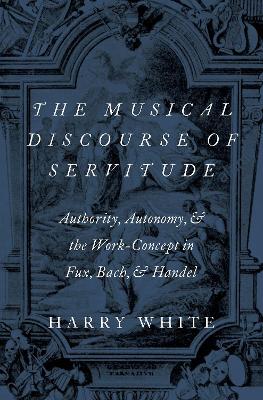Examining, for the first time, the compositions of Johann Joseph Fux in relation to his contemporaries Bach and Handel, The Musical Discourse of Servitude presents a new theory of the late baroque musical imagination. Author Harry White contrasts musical "servility" and "freedom" in his analysis, with Fux tied to the prevailing servitude of the day's musical imagination, particularly the hegemonic flowering of North Italian partimento method across
Europe. In contrast, both Bach and Handel represented an autonomy of musical discourse, with Bach exhausting generic models in the mass and Handel inventing a new genre in the oratorio. A potent critique of Lydia Goehr's seminal The Imaginary Museum of Musical Works, The Musical Discourse of Servitude draws on Goehr's
formulation of the "work-concept" as an imaginary construct which, according to Goehr, is an invention of nineteenth-century reception history. White locates this concept as a defining agent of automony in Bach's late works, and contextualized the "work-concept" itself by exploring rival concepts of political, religious, and musical authority which define the European musical imagination in the first half of the eighteenth century. A major revisionist statement about the musical imagination in
Western art music, The Musical Discourse of Servitude will be of interest to scholars of the Baroque, particularly of Bach and Handel.
- ISBN10 0190903872
- ISBN13 9780190903879
- Publish Date 5 November 2020 (first published 29 September 2020)
- Publish Status Active
- Out of Print 8 March 2021
- Publish Country US
- Imprint Oxford University Press Inc
- Format Hardcover
- Pages 340
- Language English
